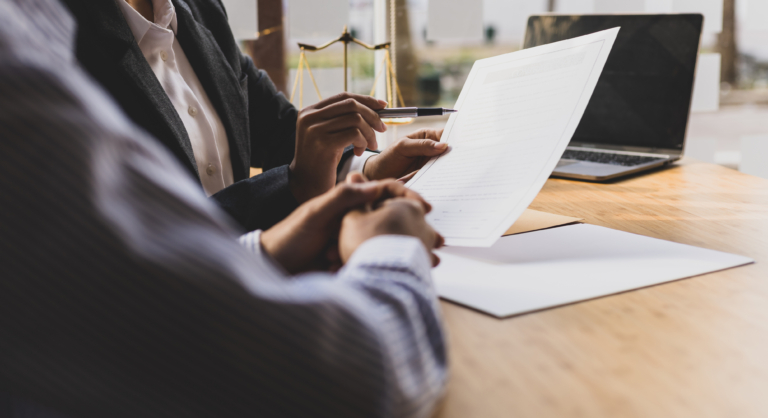Building a Good Relationship with a Lawyer
Hiring a lawyer is a major decision. You select someone to help you navigate a challenging, often emotional, situation, and you may spend a significant amount of money on their legal services. So how can you get the best return on that investment? Below are some tips and tricks for establishing a strong relationship with your lawyer and making the experience as smooth as possible for both of you.
Communicate
Communication and honesty are crucial to build trust between a lawyer and a client. Tell your lawyer what you want out of your case and why you want it. The lawyer-client relationship is driven by a client’s goals; if a lawyer doesn’t know your goals, they are flying blind. Listen to the feedback your lawyer gives you regarding whether your goals are in line with what they see as the likely outcome of your case. Ask questions and engage in a dialogue regarding likely and desired outcomes. Communication is also critical to ensure that your lawyer knows that you are engaged and interested in your case. In many cases, email will be the quickest and easiest form of communication, but if you want to speak to your lawyer on the phone, simply tell them that is your preference or ask for a call if you feel the topic being addressed needs a more robust discussion. Communication is the only way to make sure that you and your lawyer are on the same page and that there is not a discrepancy between your expectations and your lawyer’s strategy.
Ask Questions
Your lawyer does not know what you do not know. Many lawyers have been practicing for so long that they may have forgotten that, for some of their clients, this is their first court case. If you have questions about what to expect in your case, what you should be doing, or what’s going to happen next, just ask!
Be Responsive
When your lawyer asks you a question or asks you to do something, answer the question or do the activity. Lawyers typically do not ask clients to do things that do not need to be done. For example, in my line of work, I ask people for a lot of financial documents. If I send an email asking for ten documents, it is best if my client provides ten documents. Similarly, if I send an email that goes unanswered for four days, I may not know what position you want me to take in a negotiation or even a call with opposing counsel. Failing to provide a lawyer with information may impair your case.
Be Proactive
Ask your lawyer what you can do to advance your case, what information they might need, and how you can be helpful. If there are new developments or issues, tell your lawyer! It is difficult for a lawyer to work on your case if they do not have all the facts. If you are not sure whether your lawyer did something on your or their to do list, just ask. For example, if your lawyer tells you that they will send an email to the other side on a Monday and you do not know whether it has been sent by Wednesday, it is okay to follow up rather than allow that question to fester and end up feeling resentment.
Think Clearly About the Advice You are Being Given
You hired your lawyer to provide you with advice and to advocate on your behalf. If you are not satisfied with the advice you are being given or feel your attorney is not advocating for you, you are free to seek a second opinion or to hire another lawyer. That said, your lawyer often has years of experience dealing with the issues you are facing and knows the potential outcomes. A good lawyer is going to challenge your thoughts and let you know the strengths and weaknesses of your case. Take a step back and really think about what your lawyer is telling you. Does the advice make more sense when you remove your emotions from the equation? If not, talk to your lawyer and uncover where the breakdown is happening.
Be Kind
Your lawyer is your advocate, your ally, and your voice. Maintaining open lines of communication, being honest, thinking about the advice you are given, and maintaining the professional nature of the relationship all go far, but at a basic level, kindness is crucial. Particularly in family law, cases are emotional, and it is easy to become frustrated when things are not going smoothly. Instead of taking out that frustration on your lawyer, remember that they are there to help you and that they are on your side. A little kindness can help prevent a breakdown in the attorney client relationship.
These are some of the ways to make the best of your relationship with your lawyer, which in turn will also help your lawyer obtain the best possible outcome for you. If you need assistance, please contact your Bowditch attorney or a member of our Family Law Practice.
Categorized: Divorce
Tagged In: building relationship, communication




